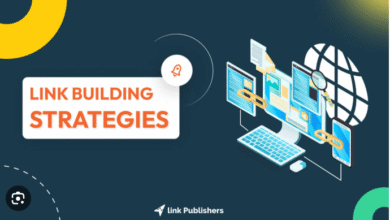Tapping Into Growth: How Distributors Can Drive Sales Of Home Solar Power Generators?

Renewable energy solutions are becoming more prevalent among householders, as the global energy landscape undergoes a significant transformation. Among these, home solar power generators are experiencing a sharp rise in demand. This trend presents distributors with significant opportunities to expand their market presence and strengthen their role in the renewable energy supply chain. However, capitalizing on this momentum requires more than just stocking products—it demands a strategic approach to meet consumer needs, create awareness, and deliver value at every stage.
Growing Consumer Awareness Of Renewable Energy
One of the main drivers behind the surge in solar power generator sales is heightened consumer awareness about sustainable energy. For eco-conscious homeowners, investing in a Solar Power Generator for Home offers both energy independence and long-term savings, making it an attractive solution in today’s rising energy market. For distributors, this means tapping into an audience that is already inclined toward green alternatives.
Distributors who highlight the cost savings, energy independence, and reliability of solar power generators in their sales approach are better positioned to resonate with this audience. By aligning messaging with consumer concerns—such as rising electricity costs and frequent power outages—distributors can create a stronger value proposition.
The Role Of Education And Marketing
While the interest in solar power generators is growing, many consumers still lack technical knowledge about how these systems work. Misconceptions about affordability, maintenance, and installation often stand in the way of adoption. Distributors can play a critical role in bridging this gap through education and targeted marketing.
Providing accessible resources—such as simple product guides, case studies, or comparison charts—can demystify solar technology and help consumers make informed decisions. Partnering with retailers, contractors, or even online platforms to deliver these materials ensures a wider reach. Moreover, engaging marketing campaigns that highlight success stories or customer testimonials can boost trust and credibility.
See also: Techniques for Correct Mulch Application for Optimal Results
Building Strong Supplier And Installer Networks
A key factor in driving sales lies in creating seamless supply and service chains. Homeowners are unlikely to purchase solar power generators if they face uncertainty about installation, support, or future maintenance. Distributors who build strong partnerships with installers, service providers, and suppliers can offer a more complete solution.
By bundling products with trusted installation services or providing direct referrals, distributors reduce friction in the buying process. This not only increases customer confidence but also accelerates the overall adoption of solar generators. Establishing these networks also ensures product reliability, as any post-purchase issues can be addressed promptly through a connected support system.
Leveraging E-Commerce And Digital Platforms
The modern buyer often begins their purchase journey online. For solar power generators, the digital marketplace is a critical channel for awareness and sales. Distributors who invest in e-commerce platforms or collaborate with established online marketplaces can capture this growing digital audience.
Digital engagement should go beyond merely displaying things and concentrate on building a powerful online presence with thorough product descriptions, instructional videos, and easily comprehensible frequently asked questions. Integrating financing options, warranty information, and transparent pricing also helps reduce hesitation among potential buyers. Social media and search advertising can further amplify visibility and attract new customers.
Adapting To Market Trends And Incentives
Government policies, subsidies, and incentives significantly impact the solar energy sector. Many regions offer tax credits, rebates, or grants for homeowners who install renewable energy systems. Distributors who stay informed about these incentives can use them as powerful sales tools.
By educating both retailers and consumers about available subsidies, distributors can position solar power generators as even more cost-effective. Highlighting real-world savings after incentives can make the difference between hesitation and purchase. This adaptability ensures distributors remain relevant in a rapidly evolving market.
Offering Flexible Financing Options
For many homeowners, upfront costs remain the biggest barrier to adopting solar technology. Even though solar power generators can lead to significant savings over time, the initial investment may seem daunting. Distributors can overcome this challenge by offering or partnering with providers of flexible financing solutions.
Options like installment plans, leasing, or buy-now-pay-later arrangements can broaden accessibility and appeal to a wider customer base. Flexible installment plans make a whole house solar generator more accessible to homeowners who might otherwise hesitate at the upfront investment. By reducing the entry barrier, distributors not only boost sales but also position themselves as consumer-focused and solution-oriented partners.
Prioritizing After-Sales Service
Sales growth in the solar industry is not just about getting products into customers’ hands; it’s about ensuring long-term satisfaction. After-sales service—such as technical support, warranty assistance, and maintenance partnerships—is critical in building trust and driving repeat business.
Distributors who prioritize strong after-sales structures are more likely to enjoy word-of-mouth referrals and customer loyalty. Clear communication channels and responsive support teams enhance the customer experience, making solar power generators a reliable and attractive option for more households.
Conclusion
The demand for home solar power generators is expanding at a rapid pace, driven by environmental awareness, rising energy costs, and technological advancements. Distributors are uniquely positioned to capture this growth, but doing so requires more than traditional sales strategies. By educating consumers, leveraging digital platforms, forming strong partnerships, adapting to incentives, and offering flexible solutions, distributors can transform market potential into long-term business success.




